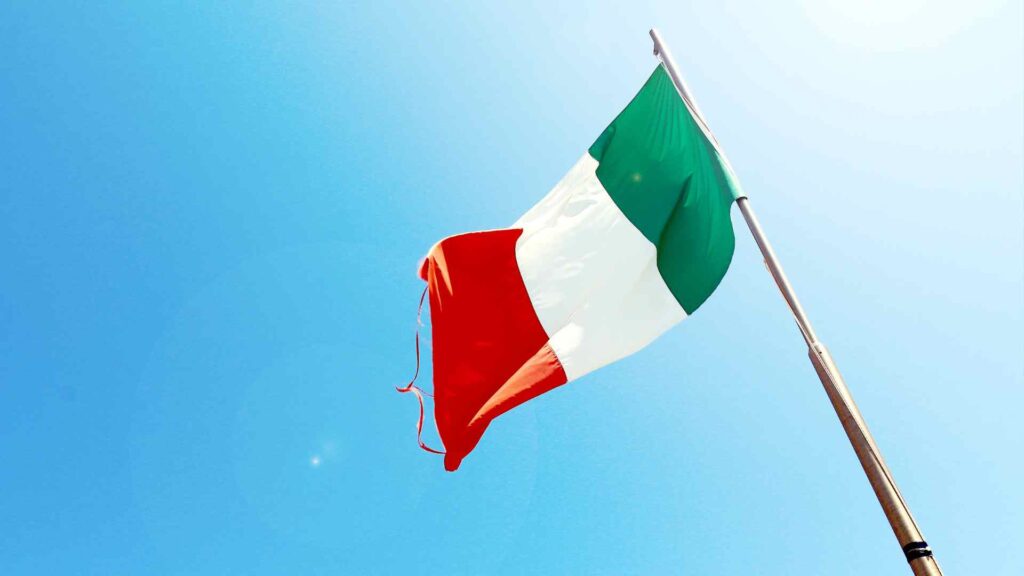Italian nicknames, or “soprannomi,” are more than just terms of endearment—they reflect Italy’s rich culture, history, and affection.
From cute to meaningful, they add a personal touch that reveals a lot about Italian social connections. Dive into our ultimate guide to uncover the charm and stories behind these beloved names!
The Role of Nicknames in Italian Culture
Italian nicknames, or “soprannomi,” play an important role in building connections and expressing affection.
They are used within families, among friends, and even in romantic relationships.
These nicknames often reflect one’s personality, physical traits, or occupation. Italians take pride in their creativity and humor when crafting these names, making them an essential part of everyday interactions.
In Italy, the use of a nickname shows familiarity and warmth, highlighting close social bonds. It’s common to be called by a nickname more often than by one’s real name.
This practice is deeply embedded in Italian society, providing insights into social dynamics and community values.
Whether affectionate, humorous, or teasing, nicknames reflect a form of intimacy and playfulness cherished in Italian culture.

Characteristics of Italian Nicknames
Italian nicknames often share certain traits, making them unique and memorable:
- Endearing and Playful: Most nicknames have a playful, affectionate tone, emphasizing close bonds and affection.
- Shortened Versions: Italians frequently shorten longer names to create nicknames that are quick and easy to say.
- Physical Traits and Quirks: A lot of nicknames relate to one’s physical appearance, gestures, or distinctive traits.
- Regional Variations: Different regions in Italy have their own unique versions and styles of nicknames.
Understanding these characteristics helps one appreciate the depth and creativity behind each nickname.
Family-Inspired Nicknames
Family ties are paramount in Italian culture, and it’s no surprise that many nicknames stem from familial roles:
- Nonno/Nonna: These affectionate nicknames mean “Grandfather” and “Grandmother,” respectively. Italians use these terms even when referring to elders outside of the immediate family as a sign of respect.
- Babbo/Mamma: These terms mean “Dad” and “Mom,” but they often become affectionate nicknames for loved ones.
- Fratellone: Translated as “Big Brother,” this nickname shows warmth and affection within sibling relationships.
- Zio/Zia: Meaning “Uncle” or “Aunt,” these terms can extend beyond actual family members to close family friends who are as good as relatives.
These nicknames emphasize the importance of familial bonds in Italian society.
Food-Inspired Nicknames
Food is central to Italian culture, so it’s no wonder that many nicknames are inspired by beloved dishes and ingredients:
- Ciccia: Derived from “Ciccio” or “Ciccia,” meaning “Chubby,” it’s an affectionate nickname that indicates warmth rather than criticism.
- Cucciolo/Cucciolina: This nickname means “Little Puppy,” often referring to a cute, lovable person, much like an adorable dessert.
- Zuccherino: Meaning “Little Sugar,” it’s a sweet, endearing nickname used for someone cherished.
- Patatina: Translating to “Little Potato,” this playful term expresses affection, often used for children or romantic partners.
Food-related nicknames reflect Italy’s deep culinary love and its use as a metaphor for affection.

Physical Appearance Nicknames
Nicknames based on physical characteristics are quite common and are often used in a lighthearted, friendly manner:
- Biondo/Bionda: This means “Blond” for males and females, respectively, and is often used for individuals with lighter hair.
- Piccolo/Piccolina: These mean “Little” or “Small,” and are used affectionately for petite individuals, often children.
- Rosso/Rossa: Meaning “Red,” this nickname is given to those with red hair or a fiery personality.
- Occhione: Translating to “Big Eyes,” this nickname highlights a person’s striking eyes.
Italians often use these descriptors to celebrate individual uniqueness in a playful manner.
Personality-Based Nicknames
Personality-driven nicknames are designed to reflect one’s character:
- Furbo/Furba: This nickname means “Cunning” or “Clever,” used affectionately for those who are quick-witted.
- Simpatico/Simpatica: Meaning “Likeable” or “Charming,” it’s used for friendly, outgoing individuals.
- Pazzo/Pazza: Translating to “Crazy,” it’s often a playful term for someone with a lively or adventurous spirit.
- Dolce: Meaning “Sweet,” this nickname is reserved for those with a gentle, kind nature.
These nicknames often highlight the charm and personality of individuals, showing how much Italians value character traits.
Regional Nicknames
Italy’s regions each have their own unique traditions, including nicknames:
- Toscano: In Tuscany, “Toscanaccio” means someone with a typical Tuscan wit and sense of humor.
- Napoletano: From Naples, a nickname like “Napoletano” refers to the lively, warm-hearted nature of its people.
- Calabrese: In Calabria, nicknames like “Calabrone” (Big Hornet) are often used, symbolizing strength.
- Siciliano: In Sicily, the term “Siciliano” might be used as a badge of honor, emphasizing pride in heritage.
These regional nicknames celebrate local identities and the distinctiveness of Italian communities.

Romantic Italian Nicknames
Romantic nicknames express the tenderness in Italian relationships:
- Amore Mio: This classic nickname means “My Love,” a term frequently used between partners.
- Tesoro: Translating to “Treasure,” it’s a romantic term for someone deeply valued.
- Cuore Mio: Meaning “My Heart,” this nickname highlights the deep affection between lovers.
- Stellina: This translates to “Little Star,” showing admiration and love in a poetic way.
These endearing names add sweetness and intimacy to relationships.
Historical and Famous Italian Nicknames
Italy’s history has left a mark on its use of nicknames:
- Il Duce: Known as “The Leader,” this nickname for Benito Mussolini reflects his powerful political influence.
- Dante Alighieri – Il Sommo Poeta: This means “The Supreme Poet,” honoring his literary contributions.
- Giovanni – Il Bello: Meaning “The Handsome,” this nickname was used for the famous Italian artist Giovanni Bellini.
- Leonardo – Il Genio: This translates to “The Genius,” referencing Leonardo da Vinci’s brilliance.
These historical nicknames demonstrate the importance of legacy and cultural impact in Italy.
Animal-Inspired Nicknames
Animal nicknames are popular for their playful and symbolic meanings:
- Lupo: Meaning “Wolf,” it signifies strength and independence.
- Orso/Orsetto: This translates to “Bear” or “Little Bear,” indicating a cuddly or protective nature.
- Tigre: Meaning “Tiger,” it’s used for those with a fierce, brave spirit.
- Gatto: This translates to “Cat,” often describing someone with grace or agility.
Animals symbolize various human qualities, making these nicknames both endearing and meaningful.
Nicknames Based on Hobbies and Interests
Hobbies and passions can also be sources of inspiration:
- Cantante: Meaning “Singer,” for someone who loves music.
- Cuoco: Translating to “Cook,” this nickname suits someone who enjoys cooking.
- Pescatore: Meaning “Fisherman,” for those who love fishing as a hobby.
- Calciatore: Translating to “Soccer Player,” perfect for someone passionate about football.
These nicknames often reflect Italians’ deep love for life’s activities and pastimes.
Italian Nicknames in Modern Times
Nicknames continue to evolve in contemporary Italy. Modern influences, such as international exposure and social media, are expanding the types of nicknames used. Today’s nicknames often mix traditional Italian roots with global influences, creating a vibrant and dynamic nickname culture that continues to adapt while honoring its rich past.
Popular Italian Nicknames in Media and Pop Culture
Italian media has popularized several iconic nicknames:
- Don Vito: From The Godfather, this nickname represents a powerful, respected figure.
- Topolino: Known as the Italian name for “Mickey Mouse,” it’s used affectionately for children.
- Zucchero: The famous singer’s nickname reflects Italy’s love for sweet, catchy names.
- Ciccio Bello: A popular doll name used as a cute, affectionate term for kids.
Pop culture helps keep these nicknames alive and relevant.
Frequently Asked Questions
What is the most common Italian nickname?
“Amore” (meaning “Love”) is one of the most popular, especially in romantic contexts.
Do Italians use nicknames often?
Yes, Italians frequently use nicknames among friends, family, and loved ones to express closeness.
Are Italian nicknames gender-specific?
Yes, many nicknames have male and female variations (e.g., “Biondo” for males, “Bionda” for females).
Do Italian regions have their own nicknames?
Yes, regional variations exist, with each area having its own unique nicknames reflecting local culture.
Can physical traits be a source for Italian nicknames?
Absolutely, Italians often create nicknames based on distinctive physical traits like hair color or eye shape.
How do romantic Italian nicknames differ from casual ones?
Romantic nicknames like “Tesoro” (Treasure) are typically more intimate and reserved for close relationships.
